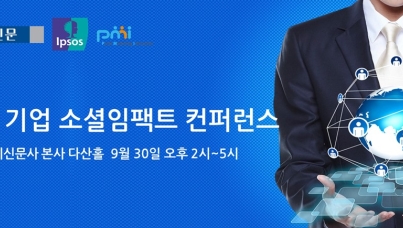Business Risk in an Age of Populism
For a deep dive into this topic, be sure to join us for our webinar on January 18.
Politics has long been an arena that business leaders prefer to avoid. However, over the last two decades, it is clear that avoiding politics is not always in a company’s control. With a new cottage industry of political entrepreneurs looking for any excuse to wind up their base and a social media environment that spreads hot takes and misinformation at the speed of light, how do business leaders “manage” when they are the target of an insta-firestorm?
Companies are still learning to cope with a fragmented media environment providing a platform to anyone with a complaint. Recent high-profile examples show many businesses are still struggling with this. Now the landscape has shifted again with intense partisan reactions causing sudden and unanticipated political and ideological realignments of customer bases.
Businesses need to have a lens towards social and governance issues to systematically approach these problems. And, with the 2024 election coming into focus, the risks of this dynamic are high and must be considered. Here are four important things companies must know:
- Understand your company’s risk profile
- Understand your customers
- Track social media
- Prepare a communications plan
What are the greatest risks to a company?
Politicization is about mass movement, not the actions of one person. In May 2023, Ipsos conducted original survey research with American consumers to investigate the nexus between businesses and politicization. Ipsos investigated 29 companies, some of which have had their own political issues and some that have had no issues. The findings were surprising and suggest that planning for political impacts will be vital for businesses looking to navigate the context of a presidential election year when politics and emotions run high.
The ever-expanding targets of politics:
Americans are increasingly combining their behavior as consumers with their beliefs as citizens and partisans. A company’s public stance on social and political issues, or lack thereof, can have a lasting impact on consumer behavior. A quick analysis on Google Trends shows that, over the last few years, there has been a spike in searches for the term “boycott.” Ipsos’ survey indicated that over a third (38%) of Americans say they choose not to support a business because of its political leanings or values.
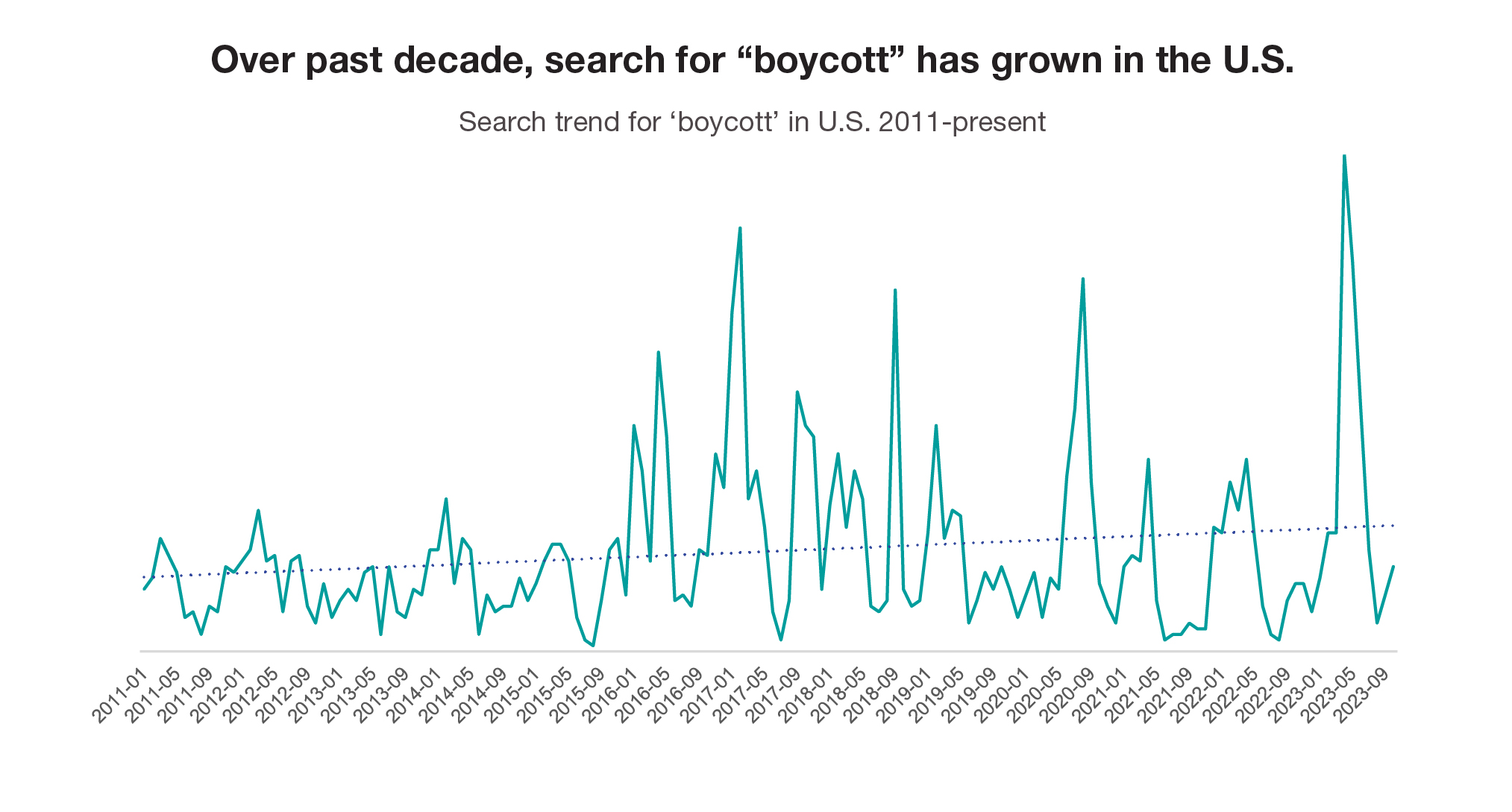
These boycotts appear to be having real business impacts. The data indicates among companies that Ipsos measured in the February 2017 version of this survey, those with the highest rate of consumer boycotts also experienced the worst stock market performance over the last three-month period. When this analysis was conducted, three of the four companies with the highest level of boycotts in the study sample posted market losses above 15% over the time frame, which starts days after the presidential election.
Conventional wisdom recommends that companies respond to hyper-partisan consumers by keeping their heads down and trying not to be drawn into debates. For the most part this is prudent advice – but is it enough in today’s polarized world? The analysis found that virtually all 29 companies tested have customer bases with a mix of Republicans and Democrats. This data shows that no matter which way a company moves politically, there are quite likely going to be customers who object.
“This data shows that no matter which way a company moves politically, there are quite likely going to be customers who object”
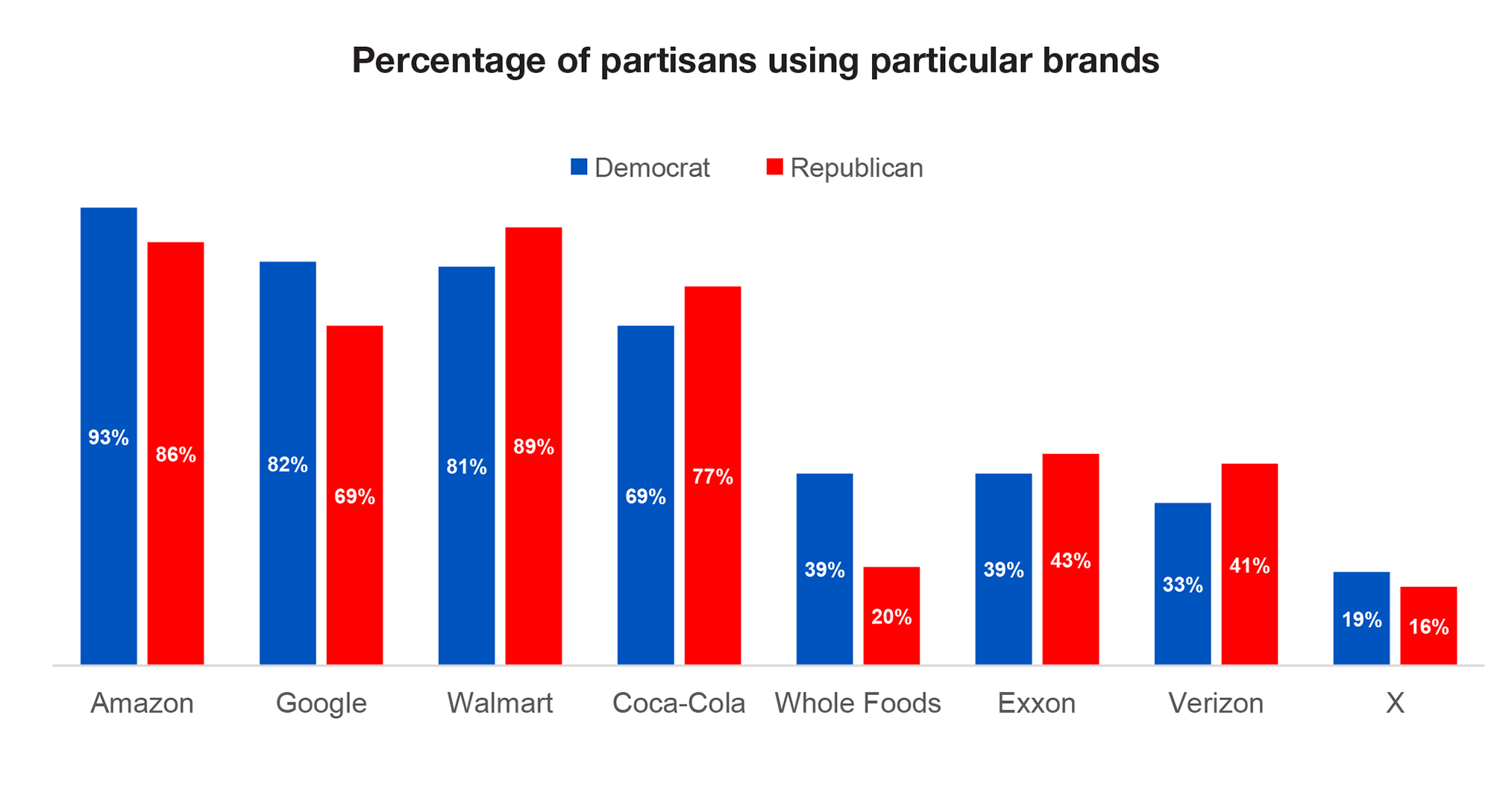
There is now an environment where, with little to no warning, social media flareups might force a company into the political limelight. It is hard to predict what combinations of factors will cause a bad political story to go viral online to the detriment of a business. This singling out of companies propels consumers to reevaluate their relationship with that business through a partisan lens and can break existing loyalties. Consumers are also increasingly organizing their behavior around their political identity.
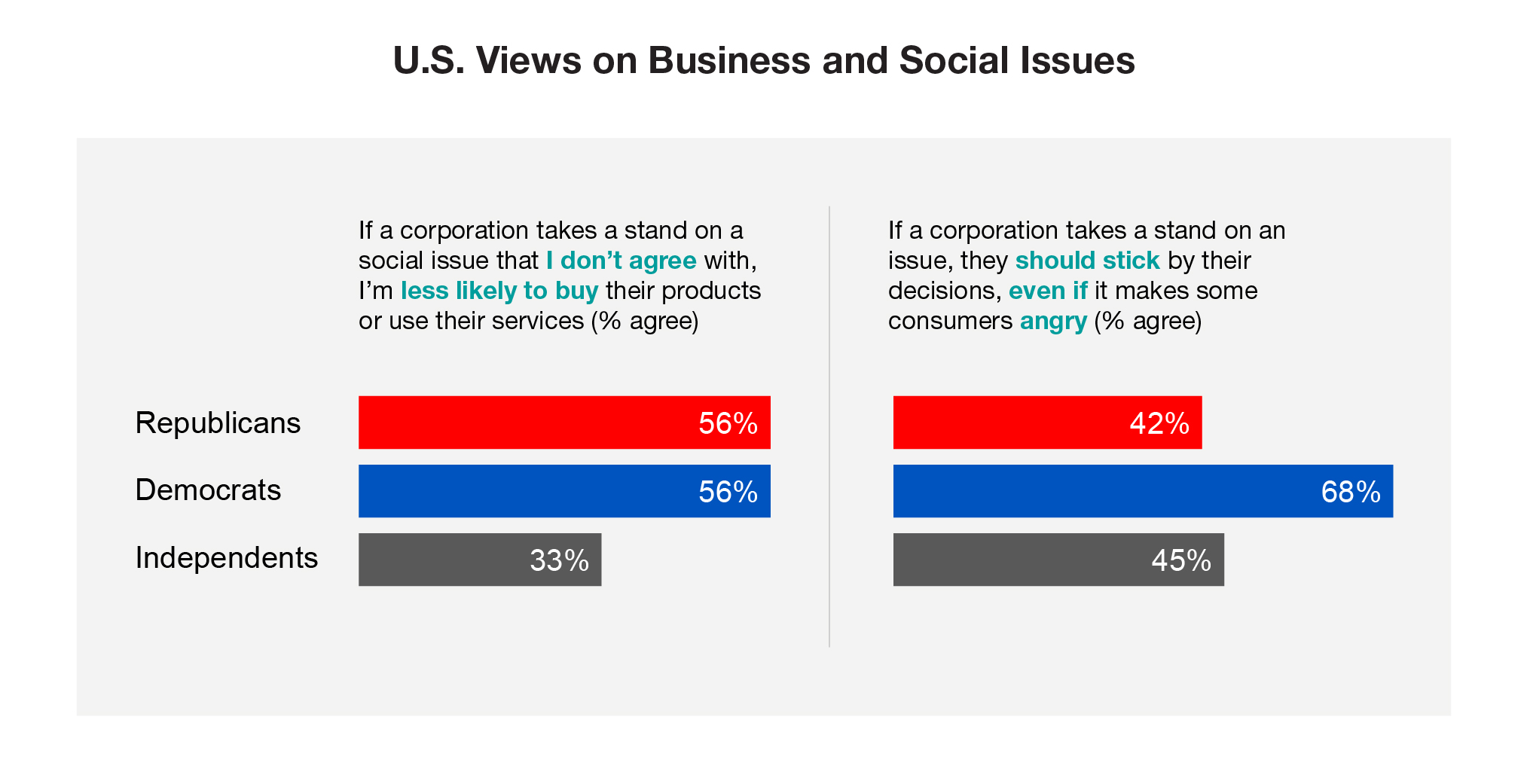
As a result, consumer backlash is a real possibility. Majorities of Democrats and Republicans report that they are less likely to buy products from a corporation that takes a stand on social issues they don’t agree with. More to the point, when a corporation does take a stand, many want to see them stick by their decision.
Why is this happening? Polarization of society and identity
At a time when it seems that no company is safe, it is important to understand why consumers are turning to companies on political and social issues. This, in part, is due to the rise in populism, which has paralleled a long-running decline in trust of “the establishment”, specifically the various institutions of government. And while public confidence in leaders across the board has collapsed, business leaders have seen less damage. As a consequence, when consumers are looking for someone to fix the myriad problems of society, they often look to the business community, placing companies in a difficult situation.
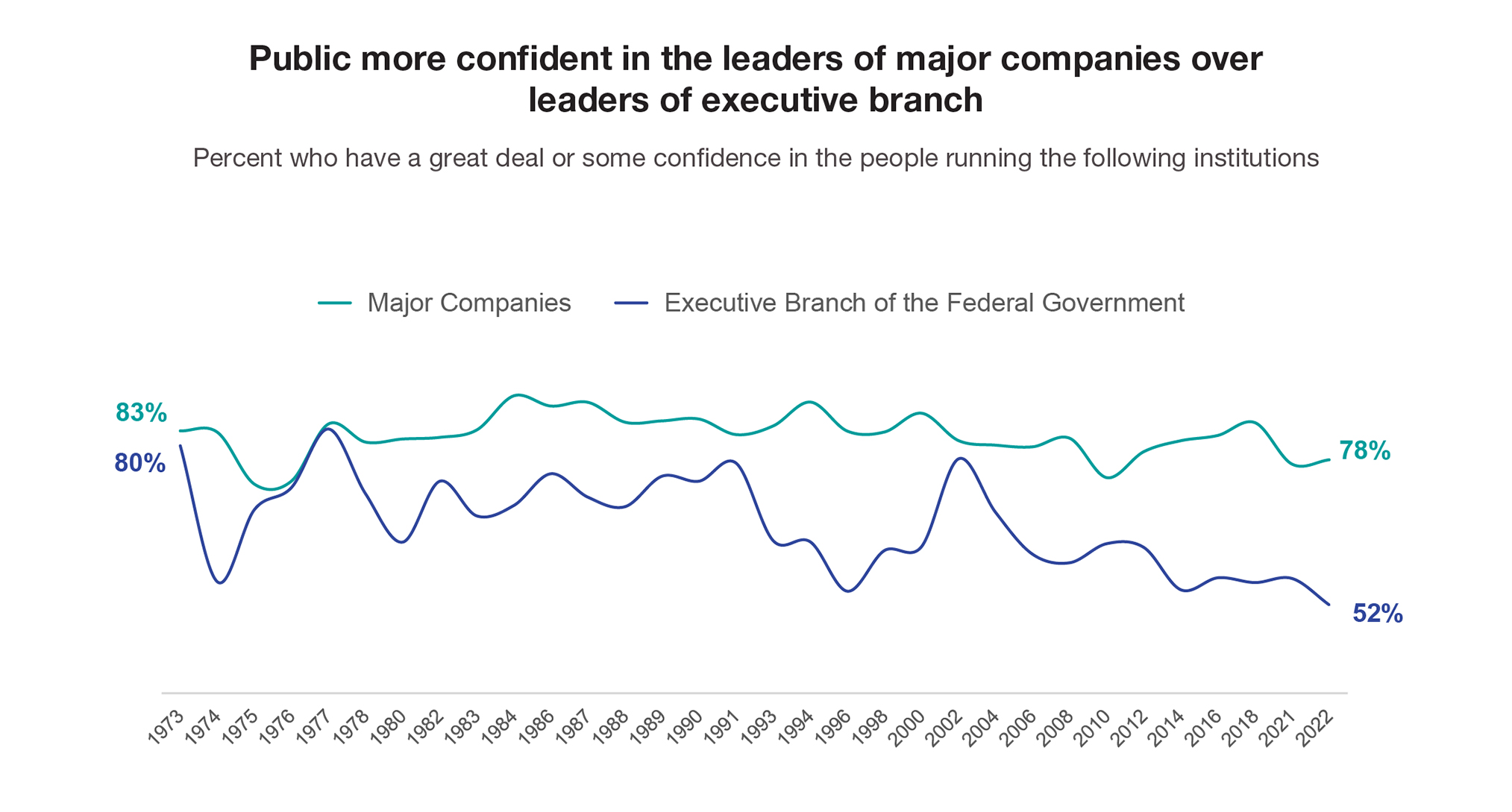
“Party ID now ranks as one of the most central aspects of how consumers organize their lives and increasingly, how they relate to brands.”
With less confidence in formal institutions, people have turned to social groups and ideology as the organizing forces for their identity. Paradoxically, while formal political parties have declined in stature, the power of partisan identification (party ID) has exploded. Party ID now ranks as one of the most central aspects of how consumers organize their lives and increasingly, how they relate to businesses. Data from dating apps indicates the extent to which ideology and partisanship are important factors for Americans. They are among the most important just behind race, and equal to education level and entertainment preferences. Partisanship is influencing not just who people vote for but even more intimate parts of their life – from what they buy to who they date.
This deeply felt group identification has led to a resurgence in populist sentiments. Such attitudes correlate particularly highly with support for Donald Trump beyond the more traditional indicators such as social or economic conservatism. With Trump likely on the 2024 ballot and in the political limelight over his various court battles, expect these issues to be activated among the public. Remember, even as partisanship is based in the realm of politics, this identification also frames consumer behaviors. It is the backdrop and centripetal force of the hot-button political fights that businesses get pulled into, and understanding the dynamics undergirding them is essential to managing them.
What can be done? How to prepare for hyperpartisan consumers
Now comes the hard part, what can an organization do to manage the politicization of their customer base? Unfortunately, there is no one-size-fits-all answer, but here are a few recommendations suggested from Ipsos research:
1. Understand your company’s risk profile: Just like every business seeks to have a unique value proposition, each company has a unique profile when it comes to politics. Smart businesses should undertake a top-to bottom evaluation of potential political risks. By cataloguing exposure, a company can work to minimize the opportunities for issues to explode into public. Risk factors that have flared up in the last few years include:
2. Understand your customers: Fundamentally, the politicization of consumers is a problem of reputation management. Customers abruptly shift from viewing an organization as a purveyor of goods and services to viewing the company as a political entity. In order to manage this shift, companies must understand the political beliefs of their customers AND customer perceptions of them. Given that these perceptions are liable to shift abruptly, companies should undertake regular research with customers to maintain an updated snapshot of their image.
3.Track social media: The rapid expansion of social media has provided a platform for any consumer to express their opinions and find like-minded people. As a consequence, social media has become the ground-zero for most brand crisis. Especially as consumers have become polarized, they have sorted themselves into online communities of likeminded people. These communities allow for the politicization of companies to go viral and spread from consumer to consumer rapidly. Monitoring conversations about a company on social media is a necessary early warning system for any aware organization. Tracking the early conception and spread of how their business is getting tied to political connections will give a necessary warning before market impact occurs.
4. Prepare a communications plan: All this research should be undertaken to help develop contingency plans for organizations to respond in the event of a political crisis. Responding early, aggressively and thoughtfully is key to prevent a potential crisis from metastasizing into a full-fledged emergency.
Conclusion
Economic, social and technological changes have created an inflection point in 21st century society. Populists and the defenders of globalism are squaring off and increasingly dividing the world into tribes. Smart companies try to stay out of the fray but bare-knuckle politics doesn’t respect even the best intentions. Businesses need to be ready for what happens if they become a political flashpoint.
These steps do not guarantee that a company will weather a political storm unscathed, but they do improve an organization’s chances. Ipsos is uniquely suited to help guide businesses through this landscape. With multidisciplinary expertise ranging from social trends to social media, from political prognosticating to risk mitigating, Ipsos has the skills, tools and understanding to help adapt to this new age of populism.


